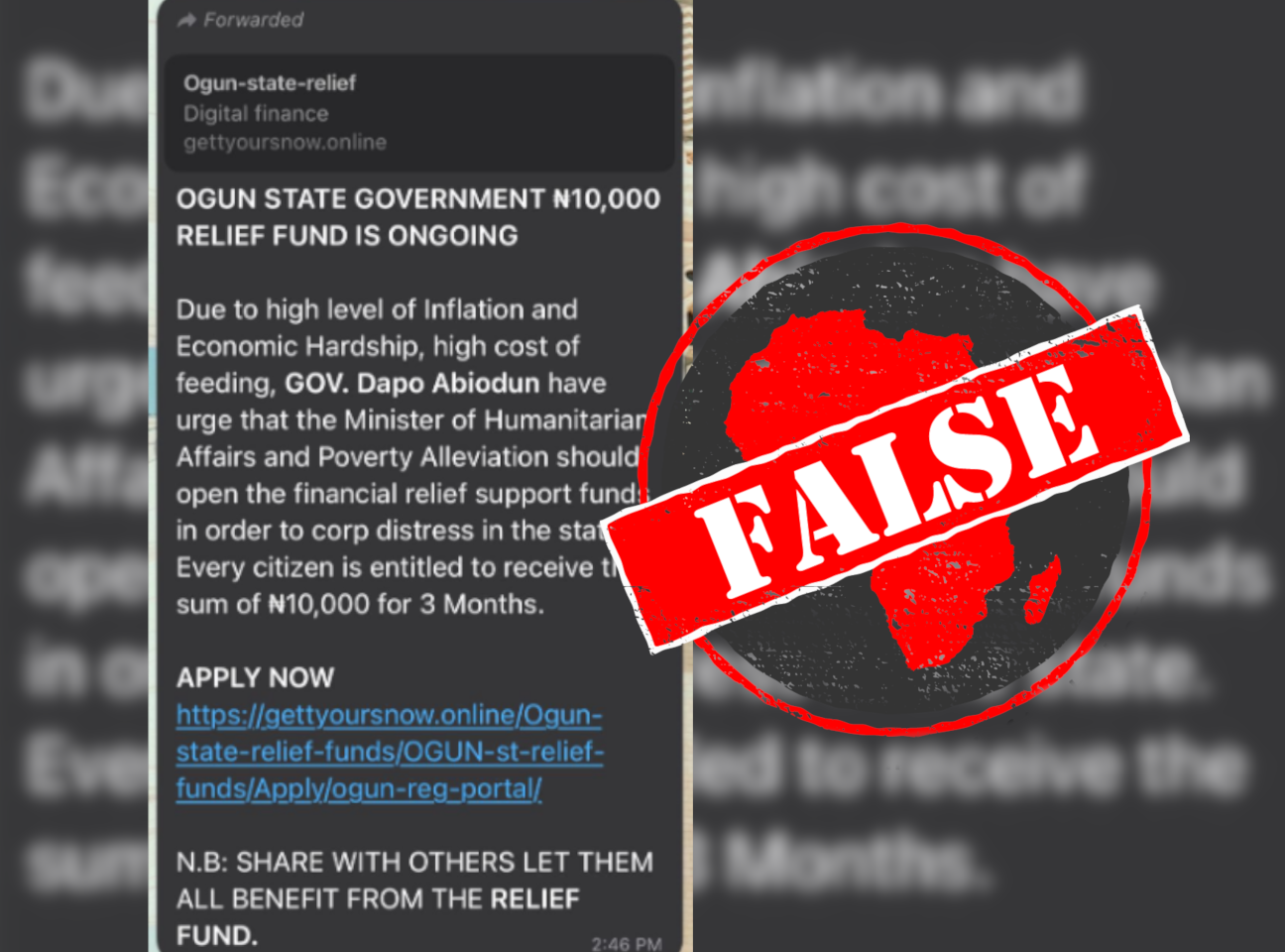IN SHORT: The rising cost of food, fuel and other basic necessities has left many Nigerian households struggling to make ends meet. The Ogun state government has taken steps to ease the burden on its residents. But posts with a link claiming that the government is giving N10,000 to every citizen are not genuine.
A message circulating on WhatsApp claims that the Ogun state government in Nigeria is giving N10,000 (about US$7) to every citizen amid a rise in the cost of living.
The message is titled: “OGUN STATE GOVERNMENT ₦10,000 RELIEF FUND IS ONGOING.” It includes a link and encourages users to “apply now”.
“Due to the high level of Inflation, economic hardship and high cost of feeding, Governor Dapo Abiodun has urged that the Minister of Humanitarian Affairs and Poverty Alleviation should open the financial relief support funds to curb distress in the state. Every citizen is entitled to receive the sum of ₦10,000 for 3 Months,” the message reads.
Dapo Abiodun is the governor of the southwestern state of Ogun.
The rising cost of living has led to protests in some parts of the country in February 2024. President Bola Tinubu has met with state governors and private sector leaders to find ways of tackling the economic crisis.
We found the same claim on Facebook here and here.
But is the Ogun state government giving out N10,000 to every citizen through this link? We checked.

Beware of phishing
In January, Nigeria's inflation rate surged to 29.9%, up from 28.92% in December. As a result, Abiodun announced a N5 billion intervention fund to cushion the impact of the increase in the cost of living and inflation.
At a press conference on 15 February 2024, the governor told the media: “We are providing a one-time N10,000 education support grant for at least 100,000 pupils in our public primary and secondary schools in the state … It is noteworthy that we have continued to pay N10,000 transport allowance to all civil servants for the last 8 months.”
He made no mention of a grant of N10,000 to each citizen for three months, or of a link for applications.
Clicking on the link provided in the WhatsApp message brought up a phishing warning on our phones that read: “The site you are trying to visit has been identified as a forgery, intended to trick you into disclosing financial, personal or other sensitive information.”
Phishing is a tactic used to trick people into revealing personal information like bank accounts and identity numbers, often while online.
The website received a 2% rating on Scamdoc, an online tool that rates the trustworthiness of websites. This was described as a “very bad” score on the trust index.
To protect yourself, read our guide to Facebook scams and how to spot them.
Republish our content for free
For publishers: what to do if your post is rated false
A fact-checker has rated your Facebook or Instagram post as “false”, “altered”, “partly false” or “missing context”. This could have serious consequences. What do you do?
Click on our guide for the steps you should follow.
Publishers guideAfrica Check teams up with Facebook
Africa Check is a partner in Meta's third-party fact-checking programme to help stop the spread of false information on social media.
The content we rate as “false” will be downgraded on Facebook and Instagram. This means fewer people will see it.
You can also help identify false information on Facebook. This guide explains how.


Add new comment